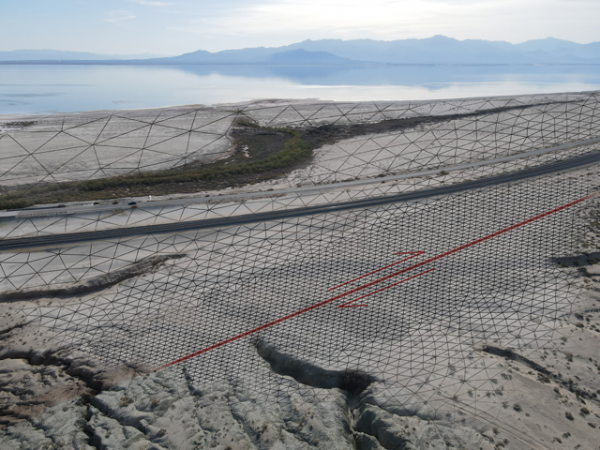Major southern San Andreas earthquakes modulated by lake-filling events (in-person presentation)
Ryley Hill
San Diego State University

- Date & Time
- Location
- In-person presentation (online via Microsoft Teams)
- Host
- Justin Rubinstein
- Summary
Both natural and anthropogenic hydrologic loads have been associated with stimulating seismicity. However, there are few documented examples that hydrologic loads can trigger large earthquakes. The southern San Andreas Fault (SSAF) in Southern California lies next to the Salton Sea, a successor of ancient Lake Cahuilla that periodically filled and desiccated over the past millennium. Here we use new geologic and paleoseismic data to demonstrate that the past six major earthquakes on the SSAF likely occurred during highstands of Lake Cahuilla. To investigate possible causal relationships, we computed time-dependent Coulomb stress changes produced by lake level fluctuations over the last ~1100 years. Using a fully coupled model of a poroelastic crust overlying a viscoelastic mantle, we find that hydrologic loads increased Coulomb stress on the SSAF by several hundred kilopascals and fault-stressing rates by more than a factor of 2, likely sufficient for triggering. Stress perturbations are dominated by pore pressure changes, but are enhanced by the poroelastic “memory" effect whereby increases in pore pressure due to previous lake high stands do not completely vanish by diffusion and constructively interfere with the undrained response in subsequent high stands. The destabilizing effects of lake inundation are enhanced by a nonvertical fault dip, the presence of a fault damage zone, and lateral pore pressure diffusion. Our model provides physical insights into relations between lake level and time-dependent seismic hazard, and may be applicable to other regions with hydrologic loading from either natural or anthropogenic sources.
Closed captions are typically available a few days after the seminar. To turn them on, press the ‘CC’ button on the video player. For older seminars that don’t have closed captions, please email us, and we will do our best to accommodate your request.
 Jump to Navigation
Jump to Navigation